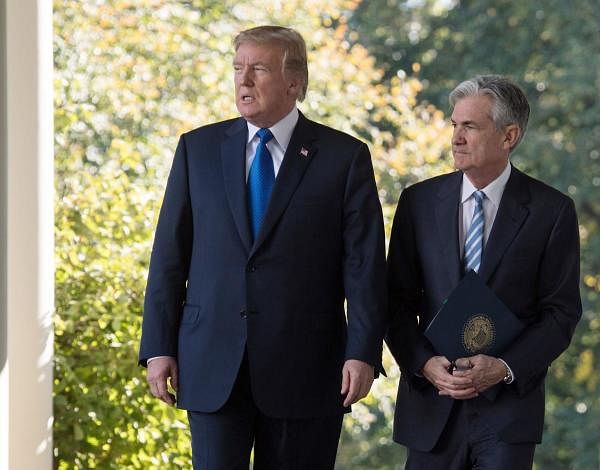Stand-offs between central banks and governments are not new. Their autonomy is increasingly being questioned by the governments across the world.
Recently, Turkey's central bank Governor Murat Cetinkaya was sacked after resisting President Tayyip Erdogan’s request for 300 point rate cut. In Italy, the coalition government is in sharp disagreement over protecting the independence of Bank of Italy.
In India too, several Reserve Bank of India governors have faced the wrath of the finance ministers, who have chosen to make public their feud with governors.
Among the finance ministers, UPA's P Chidambaram was severely criticised for his public spat with the then RBI Governor D Subbarao. Former President Pranab Mukherjee and late Arun Jaitley too had severe differences with the RBI Governors of their times.
But, US President Donald Trump's rebuke to Fed Chair Jerome Powell has dwarfed all confrontations between the central banks and the governments in the recent past.
Minutes after the Federal Reserve cut interest rates by 25 basis points on Wednesday, Trump took to twitter attacking Powell for lacking “guts”.
Well, he did not stop at that.
"Jay Powell and the Federal Reserve Fail Again. No "guts," no sense, no vision! A terrible communicator!", said Trump in one of his worst reprimands. Their feud appeared to be reaching new heights.
Compare that to Chidambaram's 2012 remark against the then RBI Governor D Subbaroa, when he refused to cut the policy rate: “growth is as much a challenge as inflation. If the Government has to walk alone to face the challenge of growth then we will walk alone.” Chidambaram was severely criticised for his remark in public but in the hindsight, it appears, he was less bitter.
Trump has been harsh with Powell in the past too but the latter has a legally protected four-year term, before which it is difficult for the President to sack him unless he moves to change the law. But, why such treatment to an independent central bank? Is the pressure on the central bank governors growing by the day and are they becoming targets of the populist governments?
It appears so. Despite severe warnings from the central banks, the meddling has not stopped. It has rather grown.
“Governments that did not respect the central bank's independence would sooner or later come to rue the day they undermined the institution," RBI Deputy Governor Viral Acharya had warned late last year. A few months later, India's youngest deputy governor had to resign from the post.
Prior to that, RBI Governor Urjit Patel had quit. Though, both cited personal reasons, their moves exposed the rift between the RBI and the government over issues ranging from lending curbs, sharing of central bank's reserves with the government and so on. Acharya's speech had only marked the peak of the discord between the government and the Governor.
In many countries, the central banks have been given the mandate to preserve price stability as its single or primary objective, and been granted autonomy from governments to make sure that short term political considerations do not interfere with achieving this objective.
But, ever since the Lehman crisis 11 years ago, the focus has turned to policies of central banks and how they tackle the growth- inflation dynamics, keeping the consumer at the centre. This has also lent governments more power to interfere.

